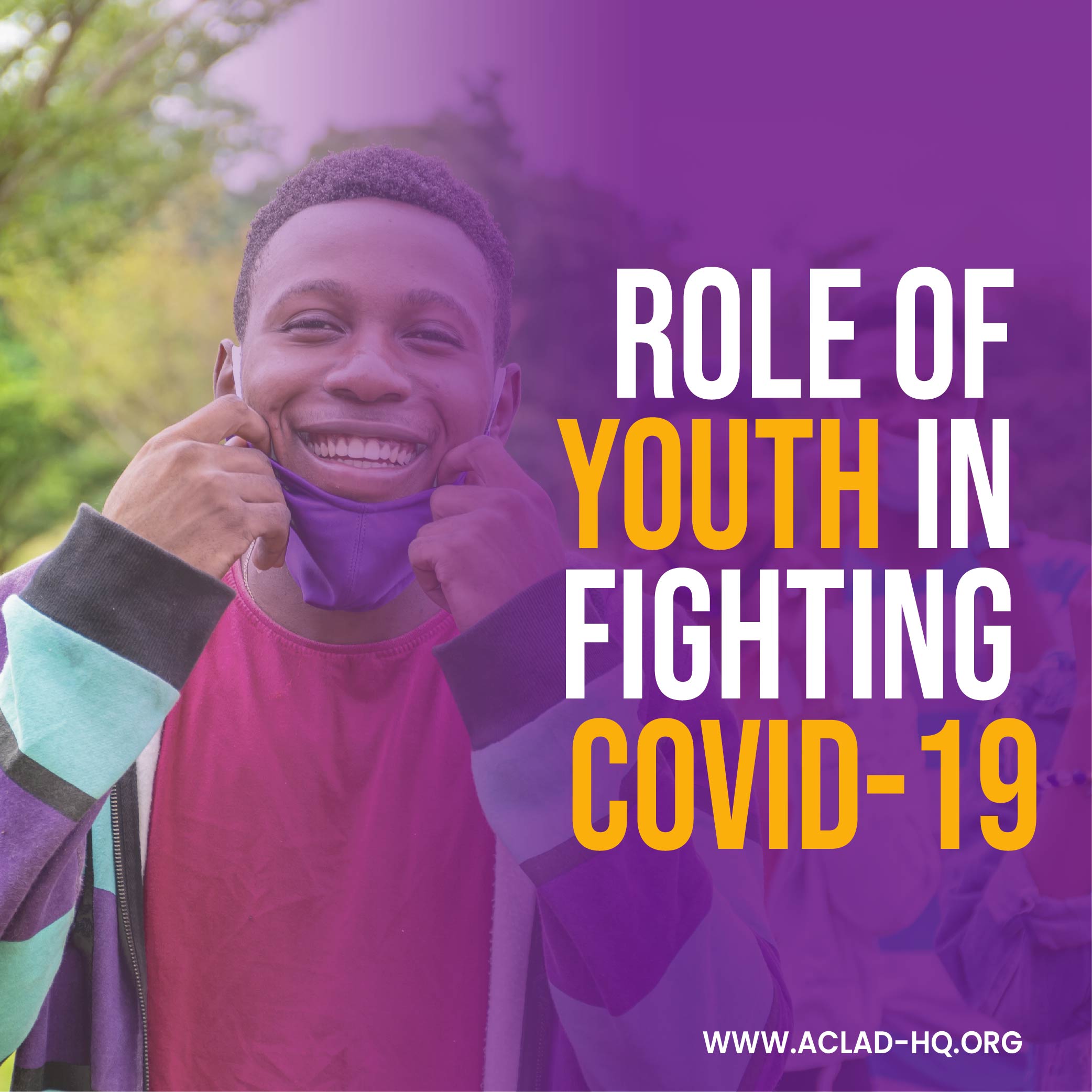Role of youth in fighting COVID-19

The COVID-19 pandemic is the glaring rampant global health crisis of our time. Since its emergence in late 2019, the virus has spread to almost every country in the world and cases are rising daily. The pandemic is a poignant contagious wave neither choosing race, gender, age nor status. It affects all. Different country governments have put limitations on travelling, administrations are putting its citizens on quarantine and cancelling large gatherings such as political rallies, sporting events, concerts and school activities as well as putting restrictions on the number of people physically attending religious activities. The world is slowing down day by day. Reports in some countries have indicated that the young people are not taking the self-quarantine seriously and are still going out and gathering in groups.
With the numbers of the confirmed coronavirus cases reaching 185 million (and rising) worldwide as at 06 July, what needs to be spread is accurate, factual information on COVID-19 as there is an influx of misinformation about the disease both on and offline. This misinformation results in stages of panic, paranoia and uncertainty among individuals, leading to some sort of discrimination or stigmatization of the infected and affected. Prevention of the virus means ensuring personal hygiene, regular handwashing, avoiding touching ones eyes, nose and mouth as well as reporting symptoms immediately, especially sore throat, breathlessness and sudden fever. Ensuring physical distance and self-isolation as well as reduction of inter-county travel was also agreed to be a measure of inhibiting the spread of coronavirus.
Youth in Kenya can play a part in fighting COVID-19 by adhering to the guidelines set by both the government and the World Health Organization of proper handwashing with soap and running water, avoiding crowded places and properly wearing a good facemask that covers both nose and mouth. Youth can also be a source of calm during this storm by being responsible and verifying information about the coronavirus before sharing. In addition, youth can find ways to check in on and support others’ mental health through the different social media platforms as well as contribute to data collection and monitoring of the response to COVID-19 especially among their peers and in marginalized communities. Above all, in doing all of this, stay healthy and stay safeCatherine Muteithia
ACLAD Media Consultant
